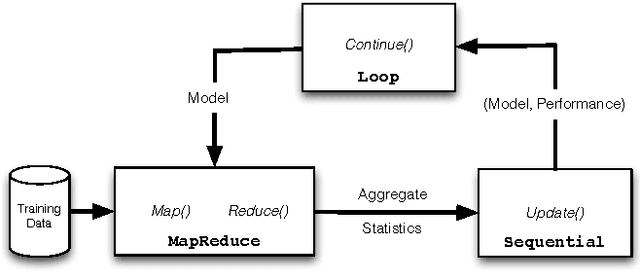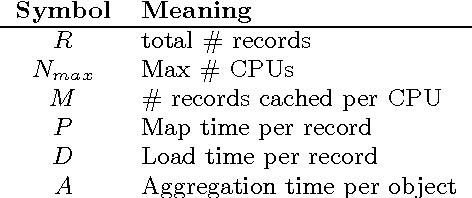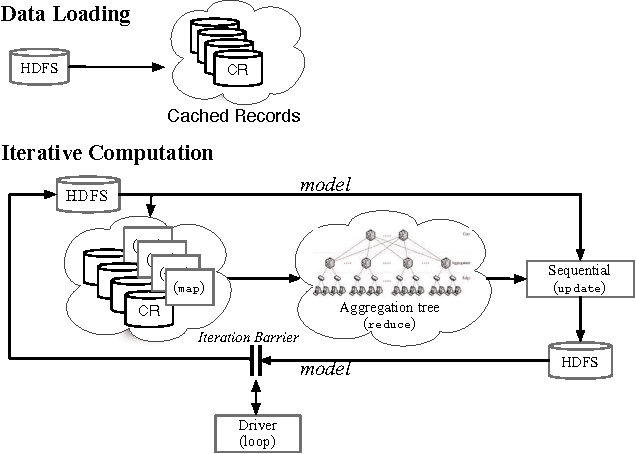Iterative MapReduce for Large Scale Machine Learning
Paper and Code
Mar 13, 2013



Large datasets ("Big Data") are becoming ubiquitous because the potential value in deriving insights from data, across a wide range of business and scientific applications, is increasingly recognized. In particular, machine learning - one of the foundational disciplines for data analysis, summarization and inference - on Big Data has become routine at most organizations that operate large clouds, usually based on systems such as Hadoop that support the MapReduce programming paradigm. It is now widely recognized that while MapReduce is highly scalable, it suffers from a critical weakness for machine learning: it does not support iteration. Consequently, one has to program around this limitation, leading to fragile, inefficient code. Further, reliance on the programmer is inherently flawed in a multi-tenanted cloud environment, since the programmer does not have visibility into the state of the system when his or her program executes. Prior work has sought to address this problem by either developing specialized systems aimed at stylized applications, or by augmenting MapReduce with ad hoc support for saving state across iterations (driven by an external loop). In this paper, we advocate support for looping as a first-class construct, and propose an extension of the MapReduce programming paradigm called {\em Iterative MapReduce}. We then develop an optimizer for a class of Iterative MapReduce programs that cover most machine learning techniques, provide theoretical justifications for the key optimization steps, and empirically demonstrate that system-optimized programs for significant machine learning tasks are competitive with state-of-the-art specialized solutions.
 Add to Chrome
Add to Chrome Add to Firefox
Add to Firefox Add to Edge
Add to Edge